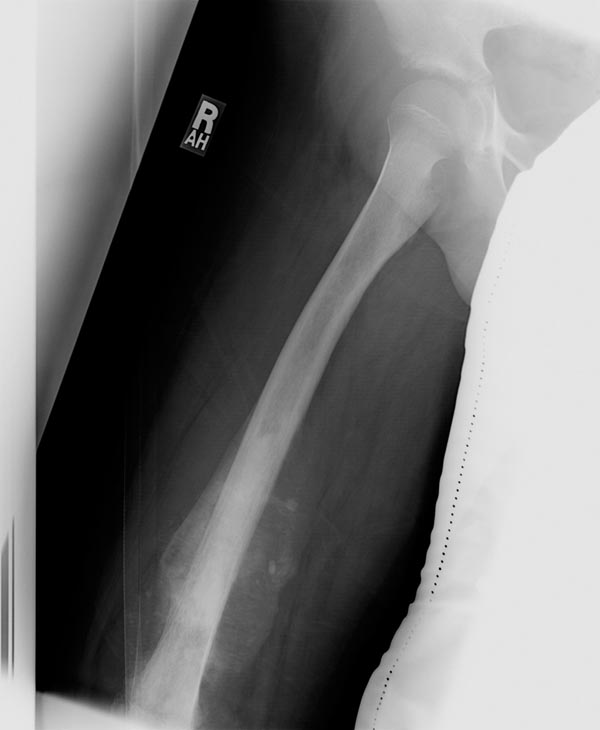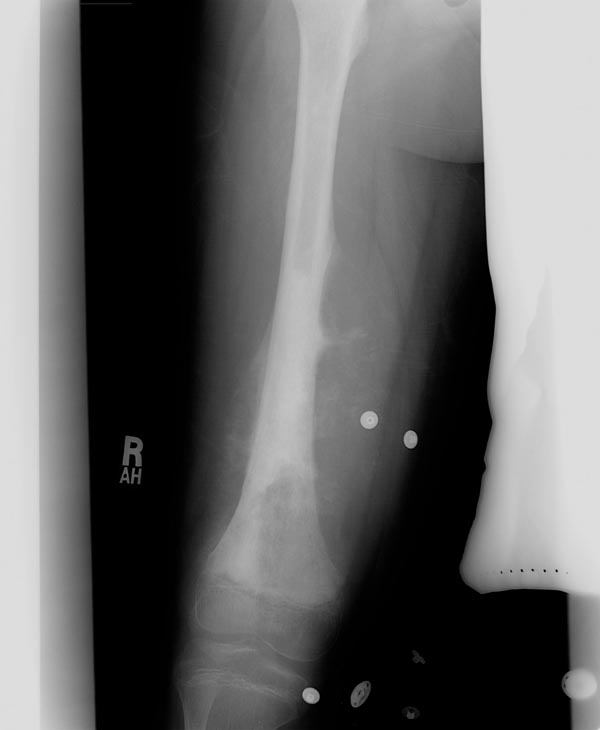Osteosarcoma x ray: Difference between revisions
Jump to navigation
Jump to search
No edit summary |
(→X Ray) |
||
| Line 9: | Line 9: | ||
*Aggressive periosteal reaction characterized by: | *Aggressive periosteal reaction characterized by: | ||
:*Sunburst appearance | :*Sunburst appearance | ||
:*Codman triangle | :*[[Codman triangle]] | ||
:*Lamellated (onion skin) reaction: less frequently seen | :*Lamellated (onion skin) reaction: less frequently seen | ||
*Soft-tissue mass | *Soft-tissue mass | ||
Revision as of 18:00, 21 September 2015
Editor-In-Chief: C. Michael Gibson, M.S., M.D. [1]
|
Osteosarcoma Microchapters |
|
Diagnosis |
|---|
|
Treatment |
|
Case Studies |
|
Osteosarcoma x ray On the Web |
|
American Roentgen Ray Society Images of Osteosarcoma x ray |
Overview
X Ray
- Conventional radiography continues to play an important role in diagnosis. Typical appearances of conventional high grade osteosarcoma include:
- Medullary and cortical bone destruction.
- Wide zone of transition, permeative or moth-eaten appearance.
- Aggressive periosteal reaction characterized by:
- Sunburst appearance
- Codman triangle
- Lamellated (onion skin) reaction: less frequently seen
- Soft-tissue mass
- Tumor matrix ossification/calcification.
- Variable: reflects a combination of the amount of tumor bone production, calcified matrix, and osteoid.
- Ill-defined fluffy or cloud-like cf. to the rings and arcs of chondroid lesions.
- X-rays, which can show the location, size, and shape of a bone tumor. Even if x-rays suggest that an abnormal area is benign, especially if the patient is experiencing unusual or persistent pain.
-
Plain film: Osteosarcoma
-
Plain film: Osteosarcoma

